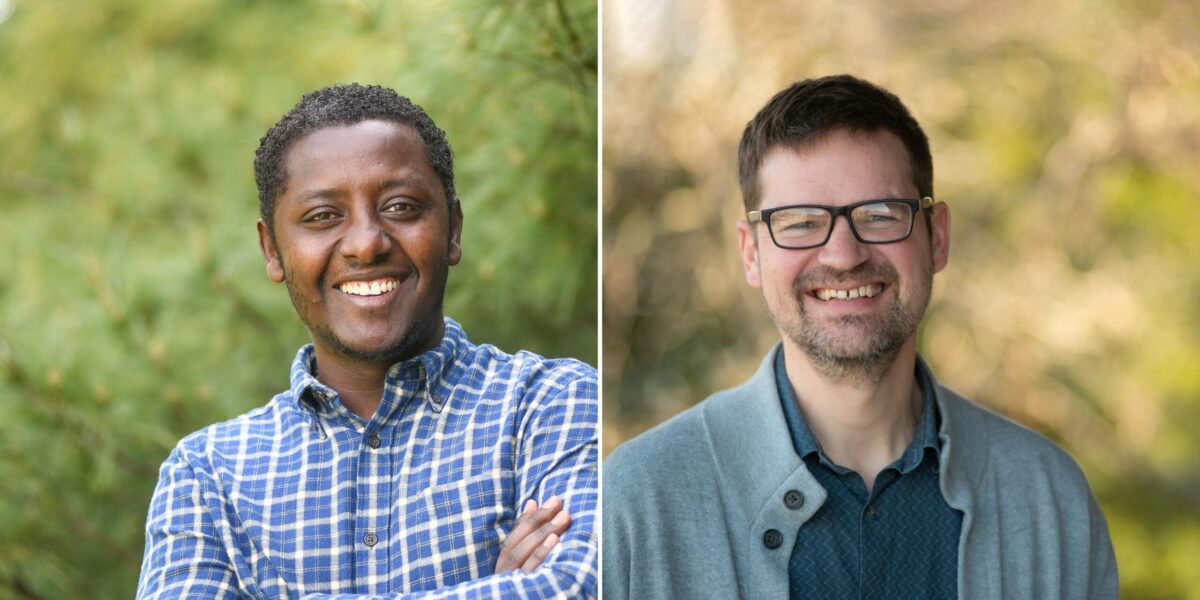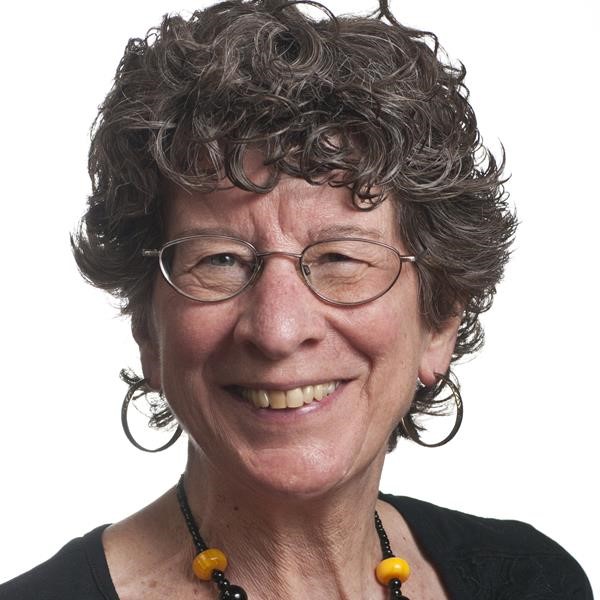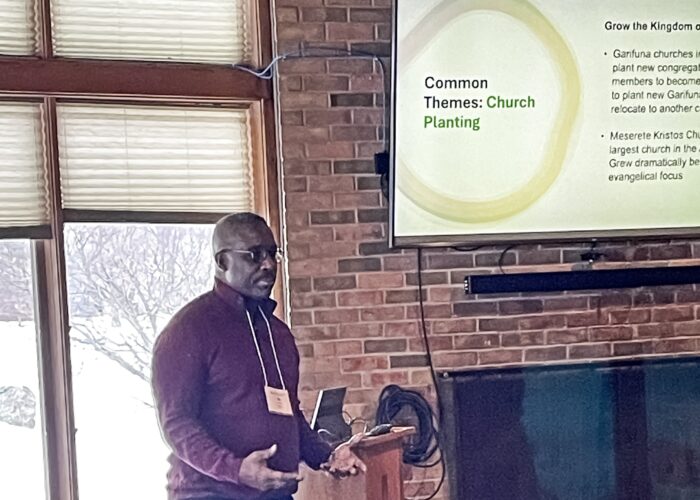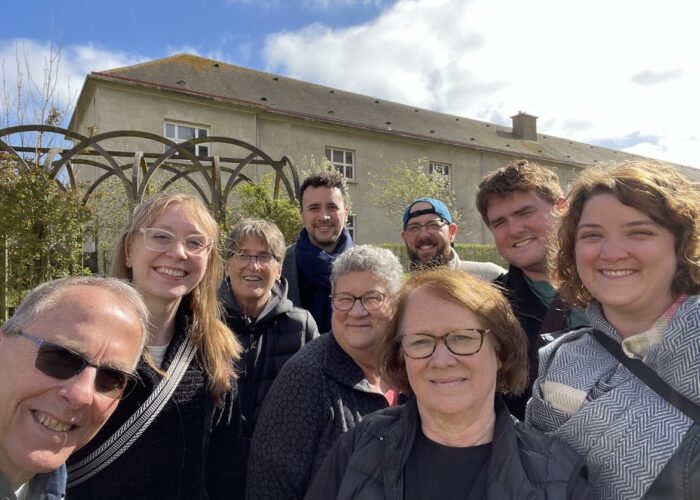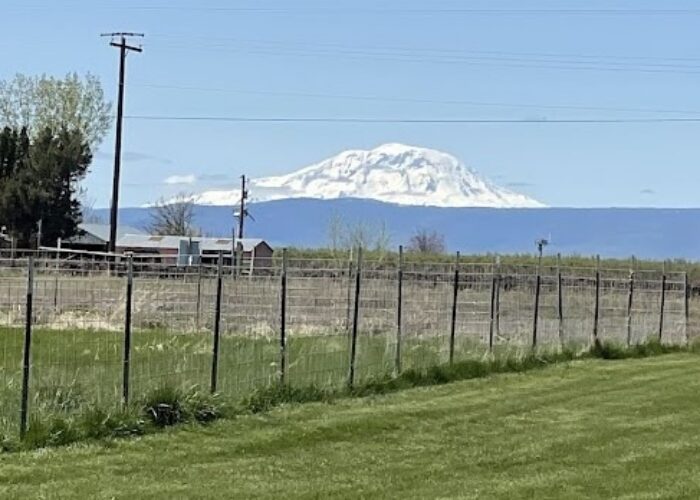At Anabaptist Mennonite Biblical Seminary’s Pastors & Leaders conference, Henok Mekonin and Joe Sawatzky presented a workshop on church growth, based on the first-century church in Antioch and today’s Meserete Kristos Church in Ethiopia, using a paradigm of four Ms: multiethnic, multiplying, maturing and mutuality.
Henok Mekonin and Joe Sawatzky, both employees of Anabaptist Mennonite Biblical Seminary (AMBS) and Mennonite Mission Network, presented a workshop, “From Antioch to Addis: Strategies for church growth” during the AMBS Pastors & Leaders 2025 | Anabaptism at 500: Looking Back, Living Forward at the end of February.
In his work, Mekonin provides specialized expertise for the partnership between AMBS and the Meserete Kristos Seminary in Ethiopia, while also supporting AMBS’s global leadership initiatives, more broadly, and working with Mission Network’s leadership training program. Sawatzky is a Mission Network training and resource facilitator and a Global Leadership Collaborative Project specialist at AMBS.
In their presentation, Mekonin and Sawatzky explored two case studies of church growth: the biblical account of the church in Antioch and the Meserete Kristos Church (MKC) in Ethiopia — the largest member church in Mennonite World Conference. By comparing these two examples of the church in mission, Mekonin and Sawatzky hoped to discern potential strategies for the growth of Anabaptist-Mennonite communities today.
Sawatzky identified “four Ms” that describe God’s mission in the first-century church in Antioch, as recorded in Acts 11:19-30. Antioch, the third largest city in the Roman empire, was a cosmopolitan place, located in modern-day Turkey, Sawatzky said. This church was:
- Multiethnic.
- Multiplying.
- Maturing.
- Practicing mutuality.
The multiethnic church
After the death of Stephen, in Acts 11, when Christians scattered to avoid persecution, some of them went to Antioch, where Gentiles were invited to worship with Jews.
“Even though the church in Jerusalem that formed on the day of Pentecost was multiethnic, composed of devout Jews from every nation under heaven, it wasn’t until Antioch that the multiethnicity of the believing community included Gentiles.” Sawatzky said.
Similarly, MKC is made up of many ethnic groups. “When you move from one region of Ethiopia to another, it is like moving to another country with different languages and ways of dressing; but MKC is one church, containing all these ethnicities,” Mekonin said.
Mekonin reported that MKC actively embraces diversity through:
- Decentralized leadership that prioritizes the local language of each region.
- Cultural sensitivity that allows for different worship styles.
- Community leadership discernment. “MKC doesn’t start with correct theology but with leadership gifts,” Mekonin said. “When a person’ gifts are discerned by the community, the community will choose who goes to seminary.”
The multiplying church
“In the first multiplying, the church in Antioch grew numerically, with a great number of believers flocking to the church, including Jews from Cyprus and Cyrene — and later, Barnabas, who was originally from Cyprus — spoke to the Greek people,” Sawatzky said.
Acts 11: 23 and 24, say that when Barnabas arrived in Antioch, he beheld the grace of God and was full of the Spirit and faith.
“God’s grace involved human participation,” Sawatzky said.
Mekonin also explained MKC’s growth in terms of God’s power to change lives and people’s faithful responses to God’s actions.
“People’s encounters with Jesus work great transformations. Evangelical faith is more than a dusting off of the Bible and our hearts. If someone comes to faith one day, the next day, they will bring three or four people! They feel compelled to share it,” Mekonin said.
The maturing church
After a great number of people came to the Lord in Antioch, Barnabas went to get the Apostle Paul to help teach the multitude, Sawatzky said.
Mekonin outlined MKC’s process of encouraging mature discipleship:
- After giving their lives to Jesus, those desiring membership in MKC must commit to three months of studying what it means to follow Christ.
- This is followed by water baptism by immersion and membership.
- All members must be active in the church’s ministries.
- All members must join a cell group.
“If the church isn’t satisfied with one’s performance in each step, that step may need to be repeated,” Mekonin said.
Mutuality in the church
Sawatzky turned to Ephesians 4:11-12 to illustrate how the five gifts of ministry work together — apostles/migrant missionaries are sent or scattered through persecution, evangelists, pastors, teachers and prophets.
Mekonin stressed the importance of evangelists, to which a workshop participant responded that many Mennonite congregations in North America say, “Thank God we don’t do evangelism! We’d have to deal with people who aren’t like us!”
Mekonin said that when the Ethiopian government began persecuting Christians, cell groups began. One person offered their house as a meeting place, and others contributed their gifts and their time in shared leadership. Not many were trained, and no one got paid, as money was scarce. But the people shared their food.
“It can be blurry how this happens. It is scary how people give sacrificially. The only way to explain it is that is Christ is working, and people learn by doing,” Mekonin said.
Role of persecution in church growth
As a response to the presentation, a workshop participant, said, “We can imagine the four Ms, but it’s harder to see the spark of persecution.”
Mekonin said that he didn’t want to present persecution as a good thing. Many MKC families have lost parents and suffered immensely. However, human beings are resilient, and persecution can have a good effect on the church, he said.
“Without persecution, would we be sensitive to the Spirit’s pushing? It would be a good spiritual practice to ask ourselves questions when we feel too comfortable,” Mekonin said. “God uses all kinds of means to accomplish God’s purposes. When we step into new territories, things start happening. Persecution did a lot of good things, even though I hate the sacrifice.”

